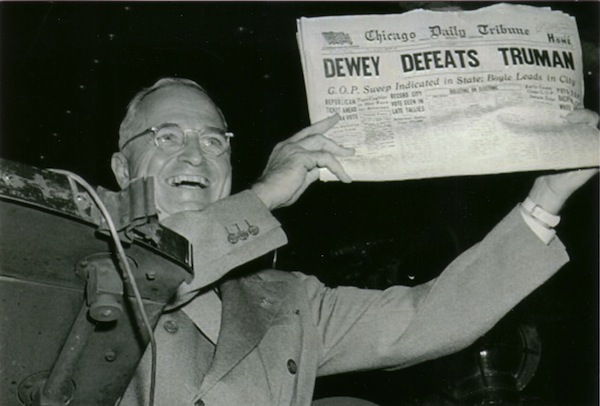

Okay, I’m not in the news business, and I’m not going to tell anyone how to do their job. However, it’d be good to have news reporting that I could trust again, and there’s evidence that fact checking is an idea whose time has come.
This results from smart people making smart observations, at two recent conferences about fact checking, one run by Jeff Jarvis at CUNY (with me involved) and a more recent one at the New America Foundation. I’ve surfaced the issue further by carefully circulating a prior version of this paper.
Restoring trust to the new business via fact checking might be an idea whose time has come. It won’t be easy, but we need to try.
Fact checking is difficult, time consuming, and expensive, and it’s difficult to make that work in current newsrooms. There are Wall Street-required profit margins, and the intensity of the 24×7 news cycle. The lack of fact checking becomes obvious even to guys like me who aren’t real smart.
It’s worse when, say, a cable news reporter interviews a public figure, and that figure openly lies, and the reporter is visibly conflicted but can’t challenge the public figure. That’s what Jon Stewart calls the “CNN leaves it there” problem, which may have become the norm. When such interviews are run again and quoted, that reinforces the lie, and that’s real bad for the country.
Turns out that The New York Times just asked “Should The Times Be a Truth Vigilante?” That’s a much more pointed version of the question I’ve previously posed. The comments are overwhelming, like “isn’t that what journalists do?” and the more succinct “duh.”
For sure, there are news professionals trying to address the problem, like the folks at Politifact and Factcheck.org. We also see great potential at American Public Media’s Public Insight Network; with training in fact checking, their engaged specialist citizens might become a very effective citizen fact-checking network. (This list is far from complete.)
My guess is that we’ll be seeing networks of networks of fact checkers come into being. They’ll provide easily available results using multiple tools like the truth-goggles effort coming from MIT, or maybe simple search tools that can be used in TV interviews in real time.
Seems like a number of people in journalism have similar views. Here’s Craig Silverman from Poynter reporting recent conferences. Silverman and Ethan Zuckerman had a really interesting discussion regarding the consequences of deception:
That brings me to the final interesting discussion point: the idea of consequences. Can fact checking be a deterrent to, or punishment for, lying to the public?
“I’m surprised we’re not talking about how fact checking could reduce misinformation in the long term by creating consequences, creating punishment,” said Harvard’s Ethan Zuckerman at the DC event.
I’m an optimist, and hope that an apparent surge of interest in fact checking is real. Folks, including myself, have been pushing the return of fact checking for some months now, and recently it’s become a more prominent issue in the election.
Again, this is really difficult, but necessary. I feel that the news outlets making a strong effort to fact-check will be acting in good faith and trustworthy, and profitable. However, this seems like a good way to start restoring trust to the news business.
Craig Newmark is the founder of craigslist, the network of classified ad sites, and craigconnects, an organization to connect and protect organizations doing good in the world.